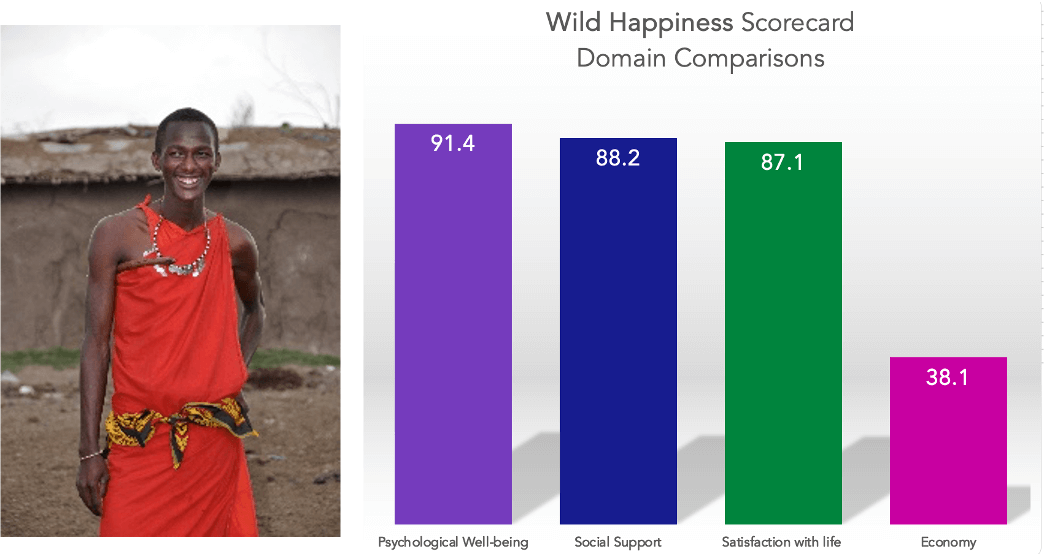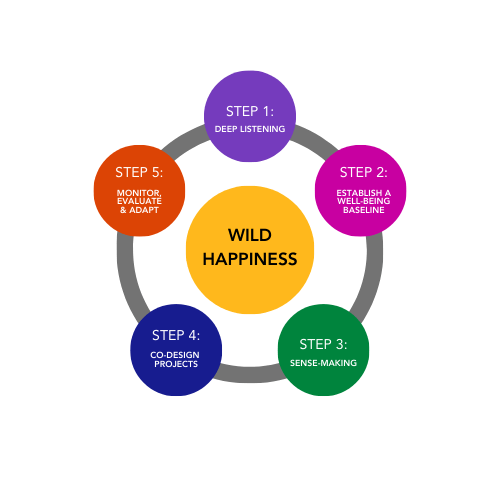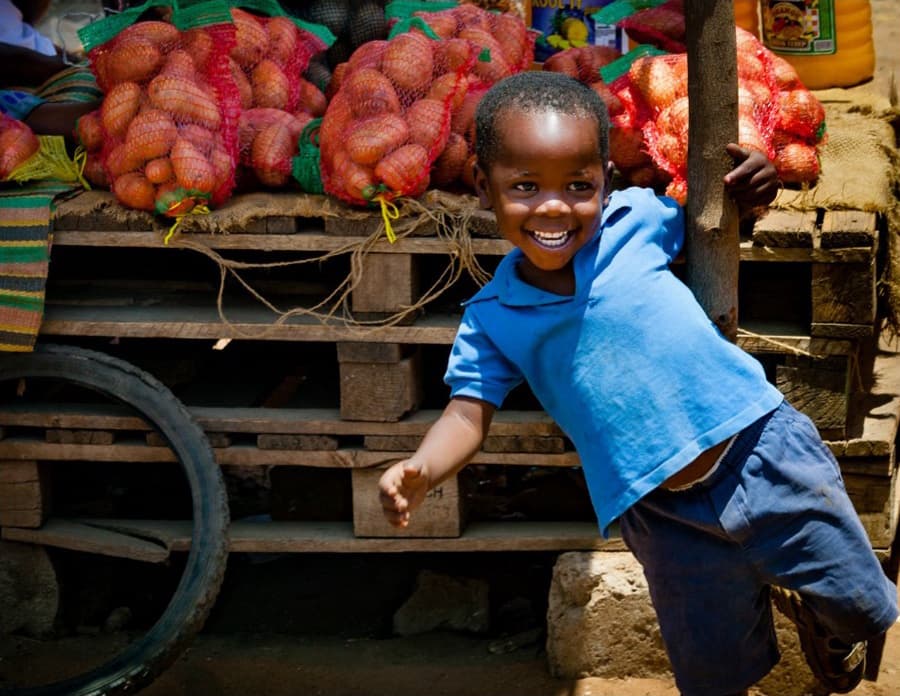Community Wellbeing-Centered Conservation (Wild Happiness)

Research demonstrates that projects incorporating community wellbeing are more likely to succeed. In partnership with the Happiness Alliance, our Wild Happiness approach to wellbeing-centered project design is based on unique data-driven tools and participatory processes essential to improved financial, programmatic, and community outcomes.
Our Unique Approach
Improved Indicators
PEER-REVIEWED, community-tested indicators that holistically link human wellbeing with wildlife conservation and habitat stewardship.
Data-driven Engagement
COMMUNITY OWNERSHIP of project activities and enhanced community wellbeing as a project outcome.
Holistic Success
MEASURABLE BENCHMARKS for improved financial, programmatic, and community outcomes.
“Using the Wild Happiness approach in this community gave IFAW new insights into how the community feels about their lives and the wildlife around them. The in-depth data analysis and expert recommendations OneNature provided help inform program design with the community to better meet their needs and track the wellbeing project impacts over time.”


Our holistic approach is designed to assess life satisfaction based on many domains of wellbeing (including health, community, economy, social support, etc.), as well as individual and community values for the wildlife around them. The Wild Happiness team provides analysis and recommendations directly relevant to the assessment. We use the results to monitor project impacts throughout the life of the project.
Introducing the Wild Happiness Certification
To bring the five-step approach to organizations and stakeholders, OneNature offers the Wild Happiness Capacity Building Model. This progressive model is designed to integrate wellbeing into conservation, environmental and community-focused projects and is structured into three levels. These levels align with organizations’ capacities and resources, progressively enhancing engagement, impact, and capacity building through a structured certification process. Whether for climate resilience, conservation, eco-tourism, or ESG strategies, this model provides a practical framework to ensure measurable, sustainable outcomes that benefit people, communities, and ecosystems alike. Upon successfully completing the model, organizations become eligible for the Wild Happiness Certification—a recognition that validates their commitment to sustainable wellbeing, inclusivity, and ecosystem resilience. This certification serves as a trust marker, demonstrating to stakeholders that the organization has integrated wellbeing as a core pillar of its mission and operations.
By adopting the Wild Happiness Certification, organizations gain more than a credential—they establish a transformative approach that fosters long-term sustainability, strengthens stakeholder relationships, and enhances their positive impact on people, communities, and the environment.
Download the PDFs to learn how the Wild Happiness Certification can elevate and transform your projects.
“Integrating social science strategies and natural science outcomes helps guide project planning and implementation toward greater sustainability by creating and maintaining measurable community wellbeing benefits.”
Want to learn more?
For more information on how to partner, support, or learn more about our unique approach please contact us at: